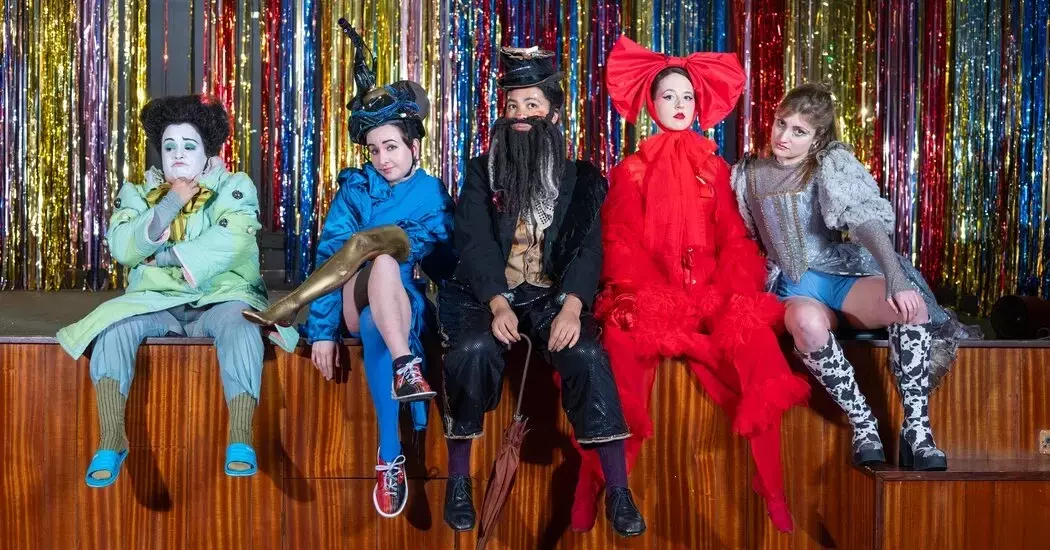For generations, the world of clowning has been dominated by male figures. However, a new wave of female performers is transforming this traditional art form, bringing fresh perspectives and unique talents to the stage. From Mexico City to London, these trailblazers are challenging stereotypes and creating laughter with their innovative approaches.
A New Era for Laughter: Witness the Rise of Female Clowns
Breaking Gender Norms in Performance
In the bustling streets of Mexico City, Gaby Muñoz, known on stage as Chula the Clown, has spent years redefining what it means to be a clown. Her journey began during her youth when she found solace in humor while grappling with societal beauty standards. “I looked at those women around me, perfect in every way, and I laughed at my own imperfections,” she reminisces. As Chula, with her distinct white face and asymmetrical eyebrows, Muñoz travels across continents, performing roles that resonate deeply with audiences. Her performances explore themes such as heartbreak and aging, topics often neglected in the predominantly male clown repertoire. For Muñoz, humor serves not just as entertainment but as a profound connection point between herself and her audience.Clowning has historically been a male-dominated profession, from ancient Greece's ribald choristers to Shakespeare's wise fools. The archetype of the modern sad clown emerged from 16th-century Italian theater, evolving further in the 19th century. Yet, despite their varied forms, clowns have consistently remained male figures. This exclusivity is now being challenged by women like Muñoz, who bring their unique experiences and perspectives to the craft, enriching its narrative depth.Inspiring a New Generation
Julia Masli, a young performer based in London, recalls her childhood aspirations of acting in tragedies, believing comedy was reserved solely for men. Her perception shifted dramatically upon witnessing Lucy Hopkins' groundbreaking performance in Brighton. “It was revolutionary to see a woman embodying absurdity so freely,” Masli recounts. In her acclaimed show "Ha Ha Ha Ha Ha Ha Ha," which premiered at the Edinburgh Fringe Festival, Masli portrays a Victorian vagabond who engages directly with the audience. By addressing real-life issues through both earnest and whimsical solutions, she converts the emotional labor typically expected of women into a source of joy and release. Masli's work exemplifies how contemporary female clowns leverage humor to address complex social dynamics, making them relatable yet transformative.Redefining Beauty and Humor
Other emerging female clowns similarly use their identities as women to redefine comedic norms. Frankie Thompson, an English actress, collaborates with Liv Ello in "Body Show," where they delve into personal struggles like anorexia without relying on exaggerated makeup or costumes. Thompson’s petite frame contrasts sharply with her bold actions—such as licking the stage—which provoke laughter tinged with discomfort about societal expectations. Meanwhile, Paulina Lenoir’s character Puella Eterna embraces feminine attire, including corsets and flamenco skirts, subverting traditional clown aesthetics. Through her cabaret performances, Puella exudes confidence typically rewarded in men but criticized in women, thereby questioning gender biases within humor itself.These pioneers demonstrate that clowning extends far beyond mere jest; it involves exploring universal human experiences through unconventional lenses. By integrating their personal narratives and societal critiques, these women are reshaping the landscape of clowning, proving that laughter can indeed serve as a powerful tool for reflection and change. Their contributions highlight the importance of diversity in artistic expression, ensuring that future generations inherit a richer, more inclusive tradition of clowning.
